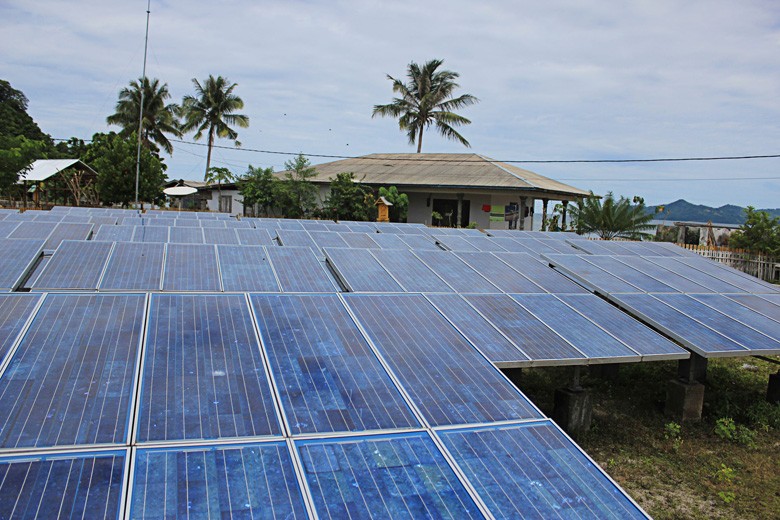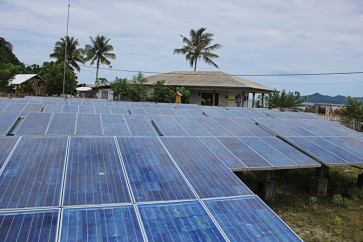Popular Reads
Top Results
Can't find what you're looking for?
View all search resultsPopular Reads
Top Results
Can't find what you're looking for?
View all search results‘Vicious devil’ of diesel subsidies hinders Indonesia’s renewable energy development
Renewable energy’s contribution to PLN total installed capacity was 12.7 percent as of October, higher than the 10 percent recorded last year.
Change text size
Gift Premium Articles
to Anyone
T
he year 2019 has justified all the skepticism about Indonesia’s decarbonization efforts with progress remaining slow as the government continues to provide subsidies for dirty fuel.
With only five years left, many renewable energy stakeholders are skeptical about Indonesia’s chances of achieving its goal to have renewables make up 23 percent of the energy mix by 2025, as stipulated in the General Planning for National Energy (RUEN) road map.
“By the end of 2018, renewable energy contributed 8.6 percent to the national energy mix. In 2019, it will be more than 9 percent,” said Indonesian Renewable Energy Society (METI) chairman Surya Dharma at a convention in Jakarta in November.
Indonesia’s transition to clean energy has been slowed by domestic energy policies that remain focused on increasing energy access by providing fuel subsidies.
As its nationally determined contribution (NDC) to the 2015 Paris climate agreement, Indonesia has committed to an unconditional target of reducing its emissions by 29 percent against a 2030 business-as-usual (BAU) scenario as well as setting a 41 percent below BAU target conditional on international support.
The Paris agreement will come into effect in 2020 with the goal of keeping the global average temperature increase to below 2 degrees Celsius through a global transformation toward clean and sustainable development.
Read also: NTT pushes to optimize use of renewable energy to meet 2019 power target


















